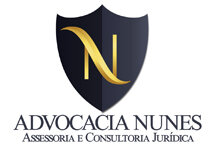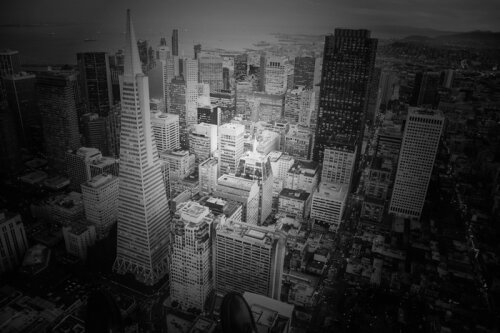Best White Collar Crime Lawyers in Atibaia
Share your needs with us, get contacted by law firms.
Free. Takes 2 min.
List of the best lawyers in Atibaia, Brazil
About White Collar Crime Law in Atibaia, Brazil
White collar crime in Atibaia, Brazil refers to non-violent offenses that are typically committed for financial gain within a business or professional environment. These crimes are often complex and involve deceit, fraud, or breach of trust. Examples include embezzlement, fraud, tax evasion, money laundering, and corruption. In Atibaia, as throughout Brazil, white collar crimes are prosecuted under both federal and state laws, giving them a serious legal standing. With economic activities on the rise in the region, awareness and enforcement of white collar crime laws have increased, and authorities remain vigilant in investigating and prosecuting such cases.
Why You May Need a Lawyer
Dealing with white collar crime allegations or investigations can be complicated and intimidating. There are several situations where seeking legal assistance is crucial:
- If you are under investigation by the police or federal authorities for a financial crime.
- In the event that your business is accused of unethical financial practices.
- When you suspect a partner or employee may be engaging in fraudulent activity.
- If you need guidance on compliance with anti-corruption and anti-money laundering laws.
- For negotiating defense strategies or plea agreements.
- To represent you during interrogations, searches, and court proceedings.
- For help recovering assets or damages caused by white collar crimes.
- When facing reputational risks related to public accusations.
Working with a qualified white collar crime lawyer can help protect your rights, ensure fair treatment, and improve the outcome of your case.
Local Laws Overview
Brazil's legal framework for white collar crime consists of the Penal Code, special laws such as the Anti-Corruption Law (Law No. 12.846/2013), the Money Laundering Law (Law No. 9.613/1998), and others. Key points to understand about white collar crime laws in Atibaia include:
- White collar crimes are prosecuted both at the federal and state levels, depending on the scope and impact of the offense.
- Penalties can include fines, asset forfeiture, restitution, and prison terms.
- Legal entities, such as companies, can be held liable alongside individuals for certain offenses.
- Investigations often involve several authorities, like the Civil Police, Federal Police, Public Prosecutor's Office (Ministério Público), and financial regulatory bodies.
- Settlements, leniency agreements, and criminal cooperation may sometimes be available, especially for those who assist authorities in investigations.
- Strict procedures govern evidence gathering and financial inspections to ensure due process and fairness.
Staying informed about local interpretations of national laws, especially as they adapt to new types of financial crime, is vital for anyone involved in business or facing legal scrutiny in Atibaia.
Frequently Asked Questions
What are common examples of white collar crimes in Atibaia?
Common examples include fraud, embezzlement, tax evasion, insider trading, money laundering, and bribery within both public and private sectors.
Are white collar crimes considered less serious than other crimes?
No, white collar crimes can carry severe penalties in Brazil, sometimes including prison sentences, large fines, and lasting professional consequences.
Can companies as well as individuals be prosecuted?
Yes, Brazilian law allows for companies to be held responsible for certain white collar crimes, with penalties including fines, operational restrictions, or even dissolution.
What should I do if I am contacted about a white collar crime investigation?
You should seek legal counsel before responding to law enforcement or regulatory authorities to ensure your rights are protected and to avoid self-incrimination.
How are white collar crimes investigated in Atibaia?
Investigations may involve the police, prosecutors, and financial regulatory agencies. They collect evidence through audits, interviews, document examination, and surveillance.
Can I avoid a lengthy court process?
Some cases allow for settlements or plea agreements. Depending on the circumstances, your lawyer may be able to negotiate reduced penalties or alternative resolutions.
Will my case be public?
Many white collar crime investigations and court proceedings are public, but there may be ways to maintain confidentiality depending on the stage of the case and the charges.
What should I look for in a white collar crime lawyer?
Experience with financial crimes, knowledge of Brazilian laws, discretion, and a solid reputation for defending clients in complex cases are important qualities.
How long do white collar crime cases take in Atibaia?
The duration varies based on the complexity of the case, the number of parties involved, and the court's caseload. Some cases resolve in months, while others take years.
Can victims of white collar crime recover losses?
Yes, victims can pursue compensation through criminal and civil actions. Courts may order restitution as part of the sentence or in a separate lawsuit.
Additional Resources
Several resources and organizations can provide support, information, or guidance related to white collar crime in Atibaia:
- Public Prosecutor's Office (Ministério Público) - Handles investigations and prosecutions of financial crimes.
- Civil Police (Polícia Civil) - Often responsible for investigating criminal complaints at the local level.
- Federal Police (Polícia Federal) - Investigates complex or cross-border financial crimes.
- Brazilian Securities Commission (CVM) - Oversees financial markets and securities fraud.
- Brazilian Financial Intelligence Unit (COAF) - Monitors and reports suspected money laundering activities.
- OAB (Ordem dos Advogados do Brasil) - The Brazilian Bar Association offers guidance for finding accredited legal professionals.
- Local business chambers and compliance associations for preventive education and legal compliance advice.
Next Steps
If you are facing white collar crime allegations or need advice as a victim in Atibaia, start by documenting all relevant information and refraining from making statements without legal representation. Contact a qualified white collar crime lawyer with experience in Brazilian and local Atibaia law. They can assess your situation, explain your rights, and guide you through the investigation or court process. You may also reach out to relevant authorities or professional associations listed above for additional support. Acting promptly and seeking knowledgeable legal guidance will help you navigate this challenging legal area and protect your interests.
Lawzana helps you find the best lawyers and law firms in Atibaia through a curated and pre-screened list of qualified legal professionals. Our platform offers rankings and detailed profiles of attorneys and law firms, allowing you to compare based on practice areas, including White Collar Crime, experience, and client feedback.
Each profile includes a description of the firm's areas of practice, client reviews, team members and partners, year of establishment, spoken languages, office locations, contact information, social media presence, and any published articles or resources. Most firms on our platform speak English and are experienced in both local and international legal matters.
Get a quote from top-rated law firms in Atibaia, Brazil — quickly, securely, and without unnecessary hassle.
Disclaimer:
The information provided on this page is for general informational purposes only and does not constitute legal advice. While we strive to ensure the accuracy and relevance of the content, legal information may change over time, and interpretations of the law can vary. You should always consult with a qualified legal professional for advice specific to your situation.
We disclaim all liability for actions taken or not taken based on the content of this page. If you believe any information is incorrect or outdated, please contact us, and we will review and update it where appropriate.









